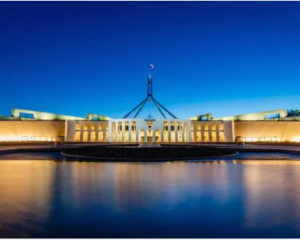State Governments have put it into effect the Federal Code of Conduct which relates to tenants’ and landlords’ rights and obligations during the COVID-19 crisis. As we get used to the new normal, the Code has been increasingly put into practice, but confusion still surrounds many commercial leasing elements. Some of the more pressing issues are outlined and given explanation below:
Eligibility
There are stipulated criteria which determine who the Code applies to. Leases and commercial licenses can be eligible for relief under Victorian regulations if:
- The lease or licence is for the purpose of operating a business;
- The lease is in place as of 29 March 2020; and
- The tenant is participating in JobKeeper.
Tenancy Protections
Tenants are not automatically granted protections and rent relief; certain eligibility criteria apply in this regard as well. In order to qualify for rent relief, tenants under an eligible lease must:
- Make a valid request for rent relief (which adheres to the requirements specified in the Regulations);
- Negotiate with landlords in good faith; and
- Pay the balance of the rent after the agreed deductions.
The key objective of the Code of Conduct is to make life more manageable during these unprecedented times. The legislation looks to ease the strain on business owners, whilst not financial crippling landlords.
Rent Relief Proposal – Waiver and Deferral
A tenant can instigate the proposal process by issuing a notice to their landlord. Should a landlord receive a valid notice requesting rent relief, they must respond within 14 days of issue with a proposal for rent relief to the tenant.
A landlord’s proposal must include a proposed waiver of rent. It may also include a deferral of rent, but this amount cannot be more than 50% of the total relief granted, i.e. at least 50% of the relief must be waived. For example, if the total relief granted was equivalent to 40% of the rent during the COVID-19 period, at least 20% of the rent must be waived and up to 20% deferred.
When determining what relief is appropriate, the landlord should consider the following:
- Reduction in the tenant’s turnover throughout the COVID-19 period;
- Any waiver or other reduction of outgoings;
- Whether failure to provide relief would compromise the tenant’s ability to fulfil their obligations under the lease; and
- The financial ability of the landlord to provide relief (including if that landlord has been provided relief by any lenders.
In making a rent relief proposal, landlords are entitled to request certain information from their tenants.
- A landlord can ask for information:
- Extracted from an accounting system;
- Extracted from a BAS; or
- Provided to a financial institution.
- A landlord should not request or require:
- Future cash flow projections;
- Balance sheets, profit and loss or year to date financials;
- The tenant’s bank balance;
- The information provided by the tenant to be verified, examined, assured, audited or provided by a third party such as an accountant;
- An accountant to provide a letter of comfort or similar document on the financial information; or
- Financial information for periods other than the ‘relevant period’ (i.e. the period nominated by the tenant as the period for a reduction in turnover).
Other Considerations
Landlords may be permitted to terminate leases in some circumstances. Some of these include:
- Where the tenant has failed to pay rent for a period prior to the COVID-19 period;
- Where the tenant has failed to pay outgoings, which are due under the lease; or
- Where the tenant is in breach of the lease except in relation to;
- Payment of rent; or
- Operating its business from the premises during the COVID-19 period.
Any rent which is deferred under an agreed rent relief proposal should be gradually repaid over the greater of the balance of the lease or 24 months. Landlords should also be aware that if a tenant’s business performs better than anticipated, the relief cannot be reduced, unless it was specifically agreed upon with the tenant. Tenants are not obliged to agree to any such clause.
Both parties should be aware that dealings in relation to land must be in writing. We would strongly recommend that any agreement made in relation to rent relief during the COVID-19 period shoud be formalised via rent relief agreement or deed prepared by a suitably experienced lawyer who can ensure compliance with the regulations and any stipulations made by the existing lease.
In one of our latest instalments in Morrows Conversations, our podcast series, Adam Neylon of Morrows Legal discussed this topic with Murray Wyatt and Noor Othman. Their discussion can be found on our podcast page.
Alternatively, if you are seeking more clarity on the topic, please get in contact with your Morrows advisor.





